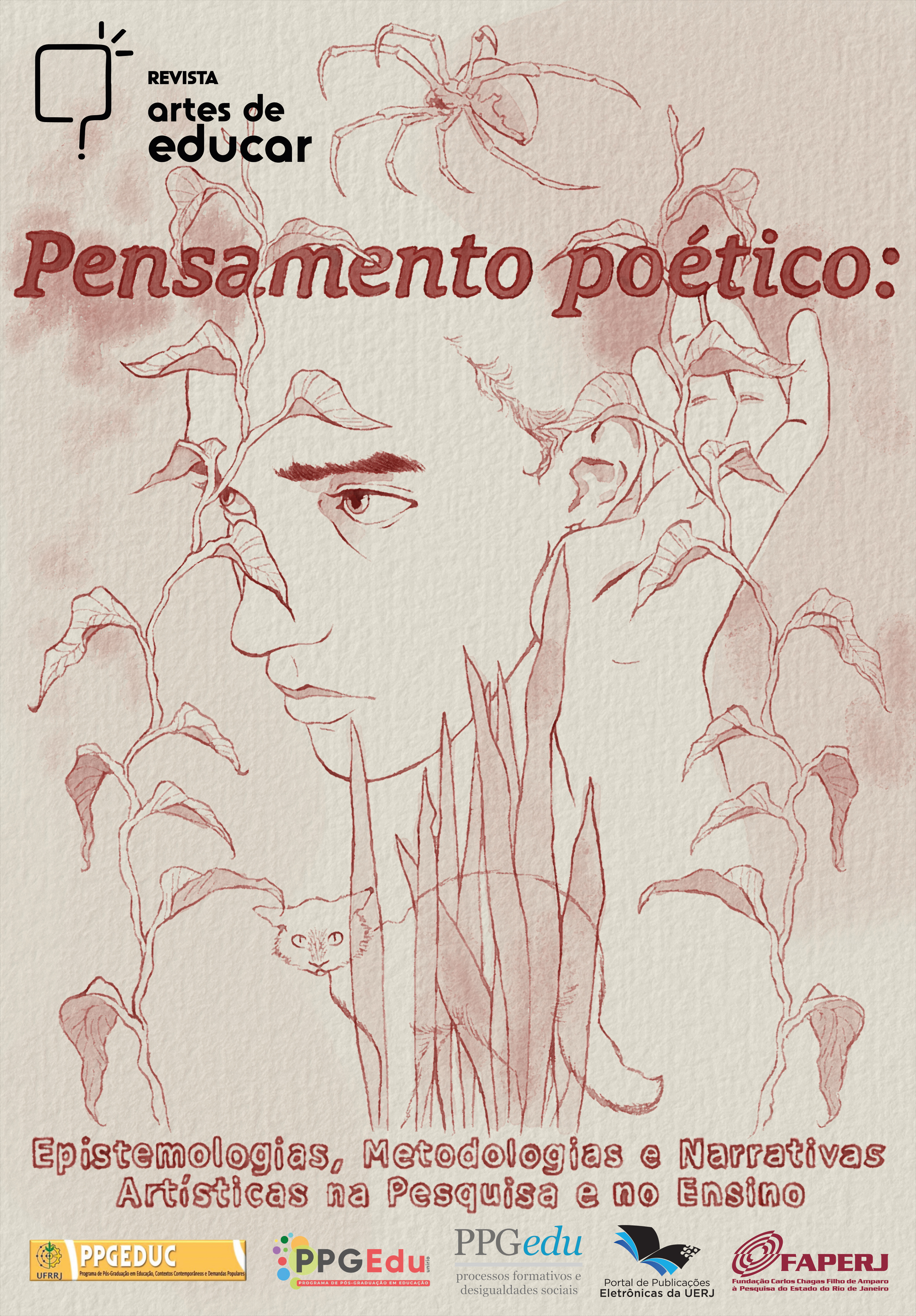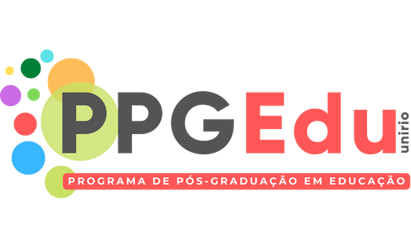Poetic-erotic practices: ways of cleaving the colonial-capitalistic regime
DOI:
https://doi.org/10.12957/riae.2024.84012Keywords:
poiesis, Eros, subjectivity, epistemology, micropoliticsAbstract
This work develops from a critique of the globalized colonial-capitalist regime (ROLNIK, 2019), which has, over the centuries, been destroying nature. However, in our time, such a regime started to plunder our subjectivities in an attempt to homogenize them. In this way, we propose to revise the erotic’s concept, to seek the recognition of some norms imposed by the status quo and the recognition of a poetic that operationalizes the erotic in opposition to the norms. We discuss the concept of erotic, addressing its problems and possibilities of amplification. We problematize the distorted, annulled and agonizing Eros, in order to demonstrate how the erotic can be understood in an expanded way, touching different spheres of life. To this end, we present the artistic practices of the artists Ana Mendieta (1948-1985), Zanele Muholi (1972), Liliana Maresca (1951-1994) and Castiel Vitorino Brasileiro (1996). They use the materiality of the body in their poetic-visual practices and, in doing so, issues that permeate their experiences in relation to gender and sexuality are highlighted, also expressed in the fight against dominant subjectivation. Their poetics operate the expansion of Eros, constructing and creating relationships between bodies and subjectivities that are distinct, thus implying other ways of existing in a world corroded by abuse and violence. In this sense, we demonstrate how the poetic-erotic of the artists fissures the complex colonial and capitalist regime.
Downloads
Published
How to Cite
Issue
Section
License
Copyright (c) 2024 Vanessa Cristina Dias, Renata Azevedo Requião, Aline Accorssi

This work is licensed under a Creative Commons Attribution-NonCommercial 4.0 International License.
Authors retain copyright to their work, are permitted to publish and distribute their work online (e.g., in institutional repositories or on their personal page) at any point before or during the editorial process, as this may generate productive changes, as well as increasing the impact and citation of published work.
The acceptance of the text implies the authorization and exclusivity of the Revista Interinstitucional Artes de Educar regarding the right of first publication, the published works are simultaneously licensed with a Creative Commons Attribution-Non Commercial 4.0 International License 























